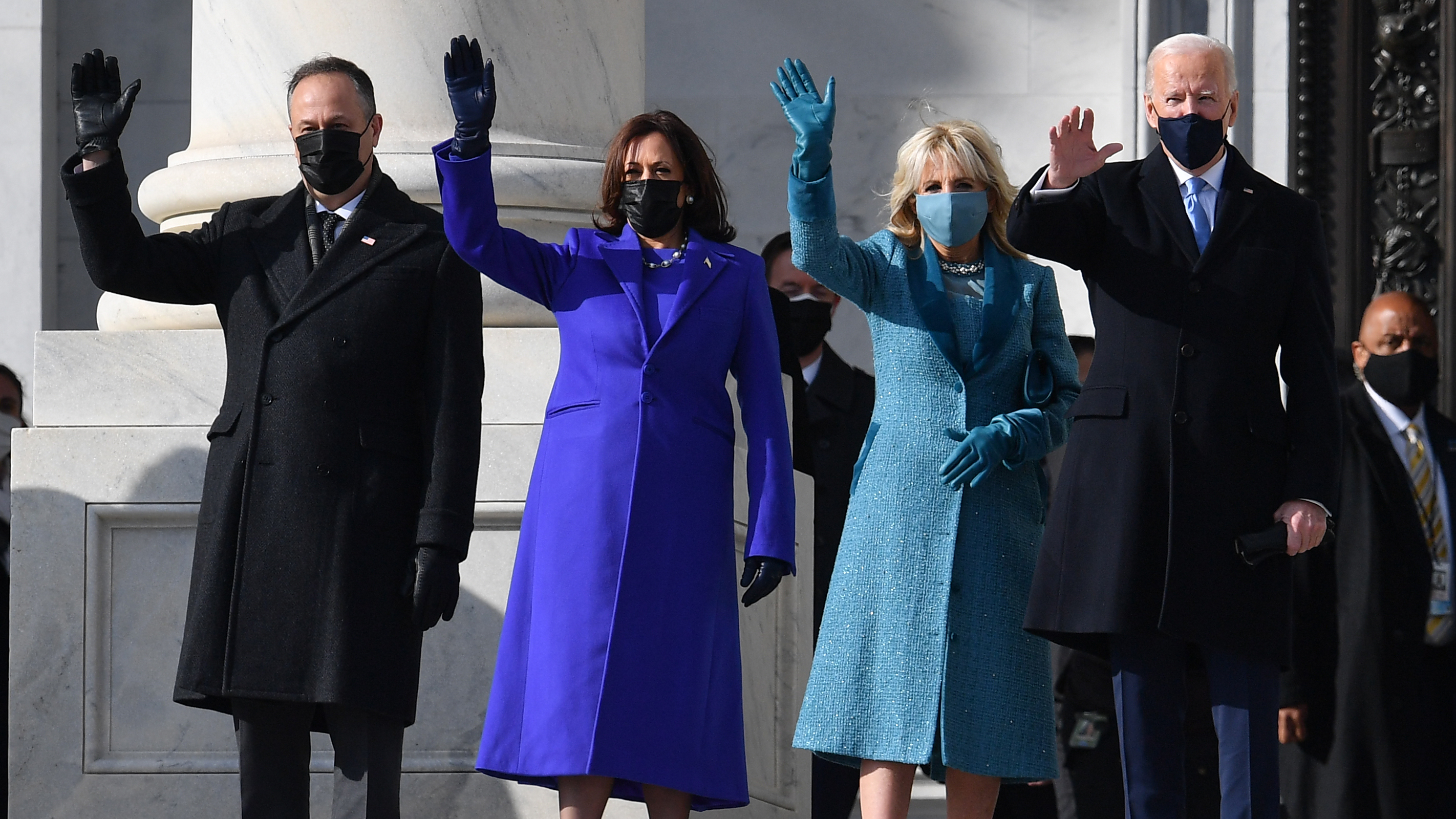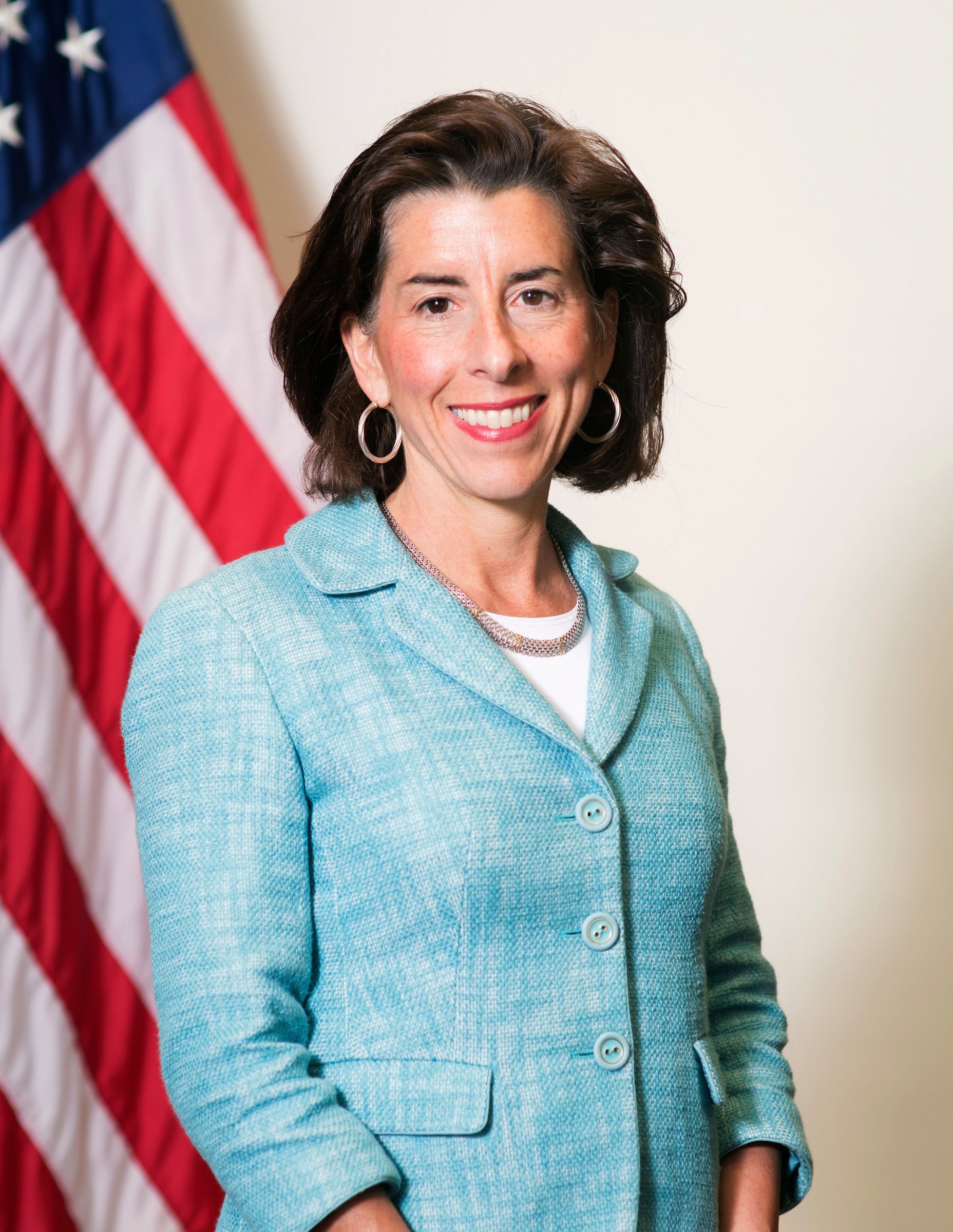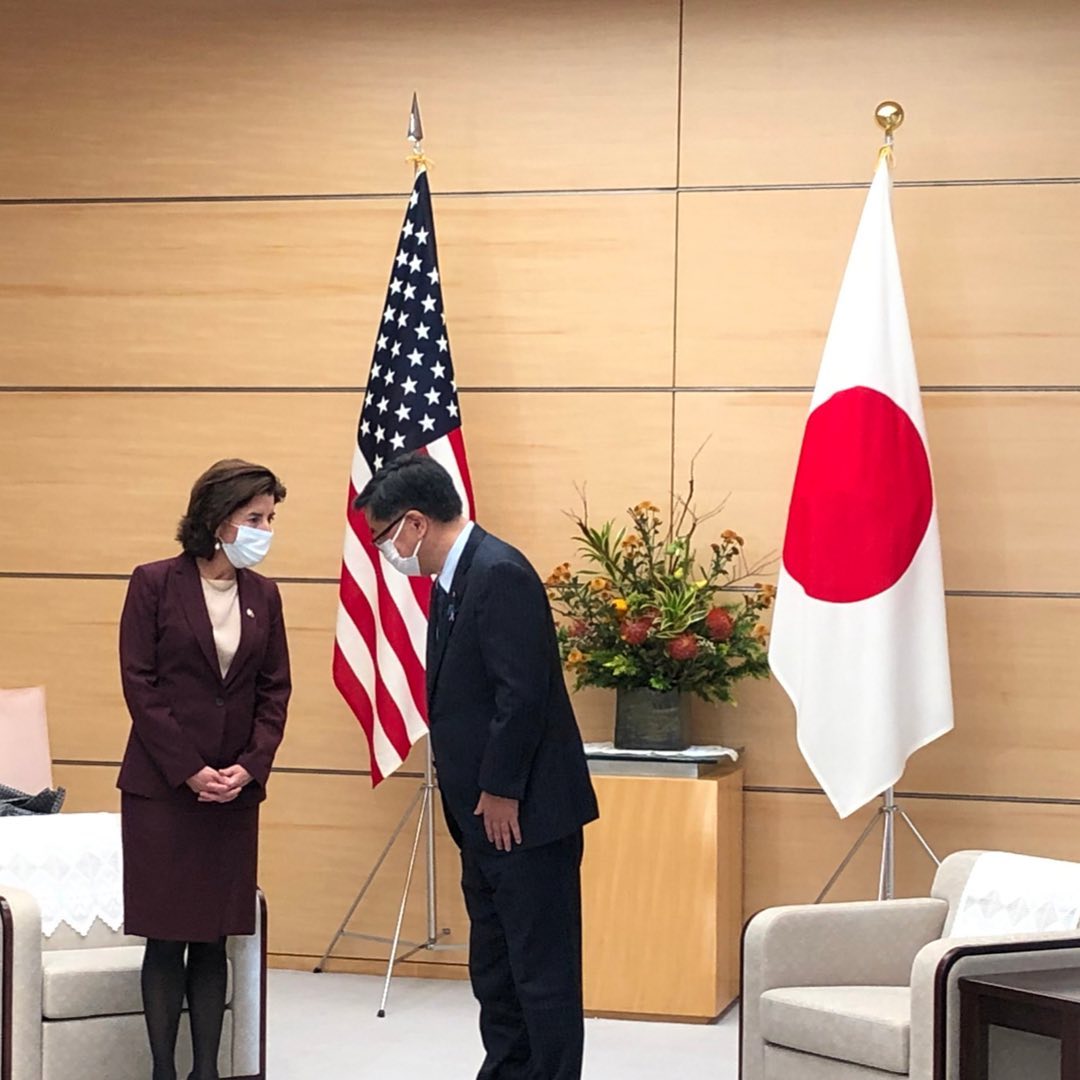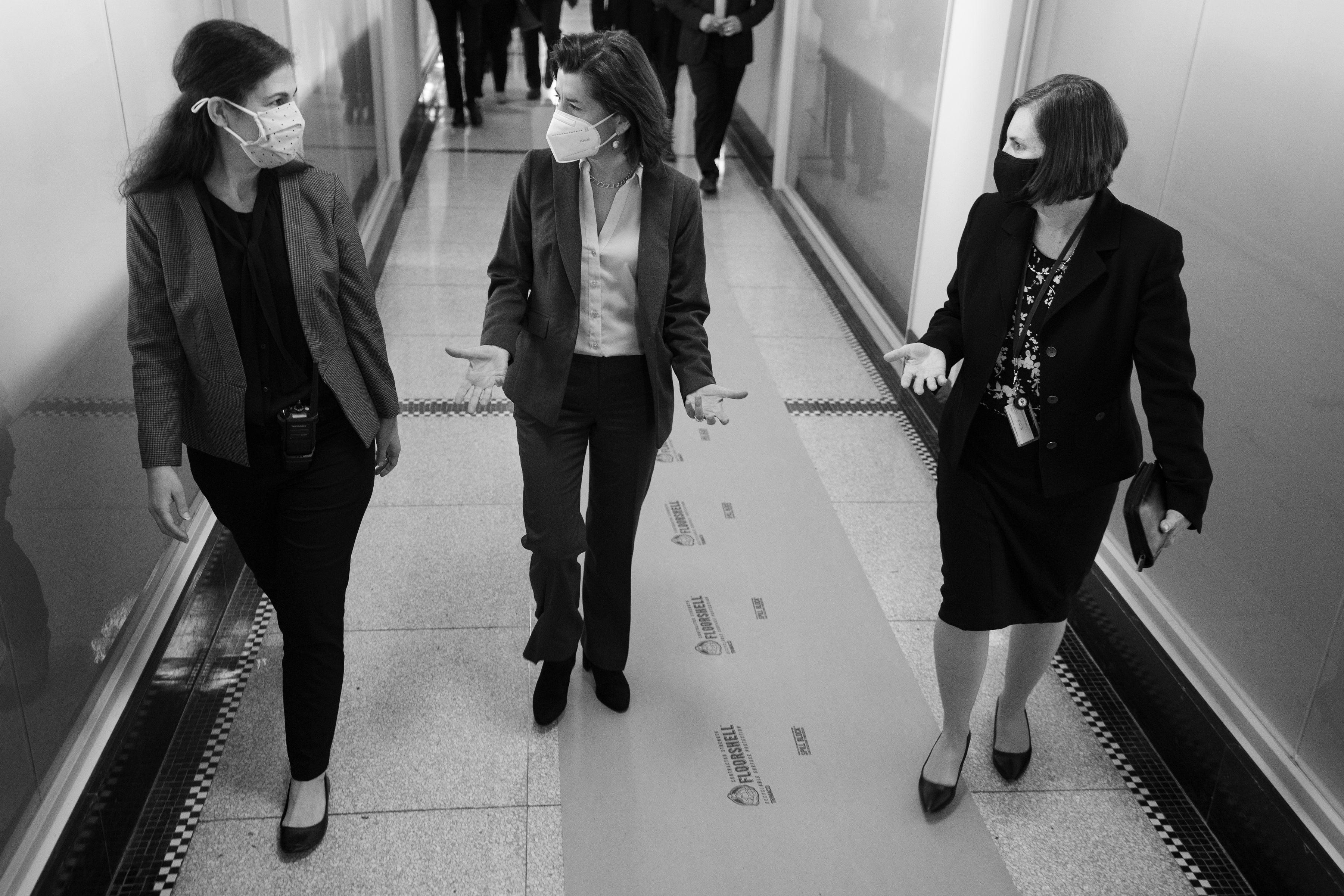One Year In, What Has the Biden Administration Done for Women?
Secretary of Commerce Gina Raimondo says there's no time for frustration that some legislation has been stymied.


The pandemic, a faltering economy, uneven foreign policy, a stalled agenda: One year into the Biden presidency and many Americans are fighting a sense of malaise. After multiple Covid variants, mixed messages over testing and vaccines, loss of loved ones, supply chain delays, the great resignation, soaring inflation, lack of affordable childcare, virtual schooling that left students lagging, it's understandable that Americans are looking to the White House for support and reassurance—but are they finding it? In this week’s marathon first press conference of 2022, President Biden was on the defensive, calling his report card “pretty good,” while he faces a stubborn Senate (including a few members of his own party) and the potential breakdown and breakup of his voting rights legislation and Build Back Better plan.
Gina M. Raimondo, previously governor of Rhode Island (the first woman to hold the title), was sworn in on March, 2021, joining the president’s cabinet as U.S. Secretary of Commerce. As Secretary of Commerce, her mission is to create good jobs, empower entrepreneurship, and help American businesses compete globally. Raimondo, a Rhodes scholar, Yale Law graduate, and founder of her own venture capital firm, notes her father's lost manufacturing job when his factory moved overseas (after 26 years working in the industry) as a formative experience of her youth.
Here, she examines the White House's accomplishments, particularly how they've helped—or haven't—American women since January 20, 2021.

U.S. Secretary of Commerce Gina Raimondo was sworn in last March.
Marie Claire: How does your work at the Commerce Department apply to the lives of young women?
Secretary Gina Raimondo: Fundamentally, what I do all day, every day is try to create high quality, high paying jobs. And I think [for] all the younger folks that I know, that's what they want. Often, they are burdened by debt, college debt, rent, and bills. And what you need is a decent job, and that is a pathway to a career. And so, at the Commerce Department, we spend all of our time working on that, whether that's job training, technical training for individuals, promoting investments in basic research that leads to innovation, that'll lead to more tech jobs.
Also, childcare. I have worked very hard to bring about President Biden's vision that everybody ought to have access to high quality, affordable childcare. And I'm a little older than your average reader, but look, I have two kids. I have an elderly mother. And it's just really hard to have a career if you don't have access to reliable, affordable childcare. And so that's something that we are really pounding the table on with Congress every single day to make that a reality.
MC: People are frustrated that the President isn't able to get the American Families Plan through with paid family leave. What does it feel like to know you have a policy that will help people and it's being stymied?
Get exclusive access to fashion and beauty trends, hot-off-the-press celebrity news, and more.
GR: If I'm being very honest, there are frustrating days. To me it seems like such a no-brainer. As a woman, as a mother, as someone who has juggled career and childcare my whole career, it seems so obvious that it's good for the economy, good for America, good for society, good for our children to have universal pre-K and affordable childcare. By the way, every other country's already figured that out. Europe, Asia, all these developed countries have already figured it out. So yes, of course it's frustrating. Why can't such an obvious, great thing happen?
Having said that, we don't have time for frustration. We’ve got to get it done. So you just have to shelve that and get back to work. Keep making the case. There are some folks who just still don't get it. And so how do I feel? I feel that I'm here to do the work of the people. And so if there's people in the Senate who are unconvinced, we’ve got to do more. We’ve got to work harder. We’ve got to convince them.
MC: Your father worked for many years in a factory that made watches before the operations were moved overseas. Do you think we'll go back to a time when everything was made in America—my couch, the fabric in my shirt, the shirt itself, is made in America?
GR: This is such a good question. And as you point out, it’s very near and dear to my heart because of my dad and all my uncles and such, who all worked in a factory in Rhode Island. Here's the thing about COVID: Right now, everybody has seen that supply chains have been so disrupted because of COVID. And a lot of that is because we are totally reliant on China and Asia for the goods that we need every day. And people realize, Hey, wait a minute. It might be cheaper and more efficient to outsource everything to Asia. But it's not always the right thing to do.

Secretary Raimondo with Japanese Chief Cabinet Secretary Matsuno Hirozaku. Years after Trump withdrew from a Pacific trade deal, President Biden has pledged to step up U.S. engagement in Asia.
So I think we will be looking to reshore a lot of manufacturing, especially high-end manufacturing, electronics, semiconductors, because we realize we have to make this in America. This is a core piece of the work that I do in the Commerce Department. The President has asked me to take a lead on this. It's something I know about and care about. Will everything be made in America? No. But 10 years from now, will a lot more be made in America? Yes, I think so. I think COVID is going to be an instigator.
By the way, I hear [this] from business leaders. Just a couple of days ago, I had a dozen business leaders in my office, and I was just checking in with them. What are your challenges, etc.? They told me they are looking to get their manufacturing out of certain parts of Asia, bringing it back to America, because they've realized that we're too vulnerable. So that's jobs. That's really exciting.
MC: How do you feel about unions?
GR: Unions built the middle class in America. My dad and all of his brothers were members of [unions]. My family wouldn't have gotten into the middle class without unions. So I think that's a fact. And also the decline of union membership has gone right alongside the decline of the middle class in America. I think that they're very important. Also, for women, extremely important. Right now, so many women, especially women of color, work in jobs in childcare or home care, taking care of their elderly loved ones. Those are very difficult, very low paying jobs.
We ought to help them unionize. That's something I did when I was governor. I made a big effort to help unionize childcare workers who are almost all, in Rhode Island, Latina, low wage, [and] many [are] immigrants. They need a voice. They deserve raises. They deserve healthcare. They deserve good working conditions. They deserve a dignified job. And so I think that unions are great. I don't know your image when you think of a union. I mentioned my dad. It's not just for white guys in the building trades. It's for custodial workers and housekeepers and childcare workers who have some of the toughest, lowest paying jobs. And I think they ought to unionize.

Secretary Raimondo with her father, Joseph Raimondo, who was laid off after decades when his factory moved to China.
MC: When we talk about improving women's lives, how important is the broadband piece of Build Back Better?
GR: It's super, super important. It's life and death, literally life and death. If you live in a rural area, you can't necessarily drive three, four hours to get to the doctor. And so the doctor offers you telemedicine. Well, you can't take advantage of that if you don't have broadband. So many kids went a full year or more without any school because they had no broadband. There's no quote-unquote "virtual school." [If] you live in Navajo Nation, or really so many parts of rural America, there is no virtual school.
What happens, if you're lucky, is you have a teacher who's very committed who will get in her car and drive to your house and drop off paper worksheets. And then you struggle through and try to figure out the worksheets, and then drive them back to your teacher. So the digital divide is enormous and has huge consequences. And I think the reality is we live in a digital world. And if you don't have broadband, it's almost like not having electricity or any other utility. It's necessary for opportunity. And so it's something that I'm very, very committed to.
By the way, the other thing is, broadband is no good if you can't afford it. You mentioned that you live in a city or near a city. That's great. If you live in a city, you probably have broadband. But if it's $100 a month, and you can't afford broadband, you might as well not have it. So that's the other piece of this.

The Secretary brainstorming with her team in the Hall of Commerce.
MC: Many people say that—whether they could attend virtual school or not—that with school closures, kids are behind a year. Do you feel like we're going to have a ripple effect in the future where our economy is hit by this wave of the people who lost a year?
GR: So, as an aside, I don't have a crystal ball. I do worry that... I will say this: I was the governor during the pandemic and fought really hard to keep schools open for kids. I definitely think there will be long-term consequences for the kids who were young and out of school during COVID. And how that manifests itself and when we see that, I don't know.
I will say this, too: A lot of what President Biden is trying to make happen in the Senate provides the support and education for these kids. Some of it is in our hands. There has been learning loss, no doubt about it. Mental health issues, anxiety, [and] depression among children is through the roof. So let's make investments in our mental health system. Let's make investments in after school programs and summer programs and good education. If we do that, maybe there won't be an impact. Or the impact will be less. If we don't, I think we will feel, a decade from now, really significant, long-term ramifications from what these kids have gone through.
MC: Why did you go into politics?
GR: A moment of temporary insanity.
MC: …that continued for decades?
GR: Exactly. Too many glasses of wine. It seemed like a good thing.
This interview as been edited and condensed for length and clarity.
Maria Ricapito is a writer who lives in the Hudson Valley.
